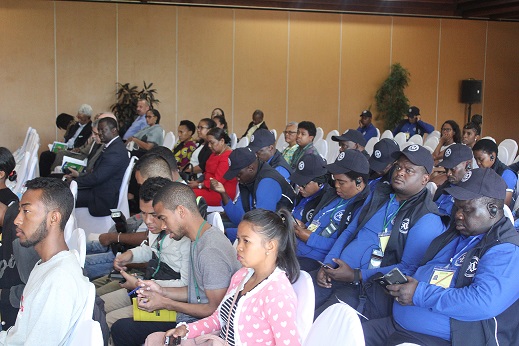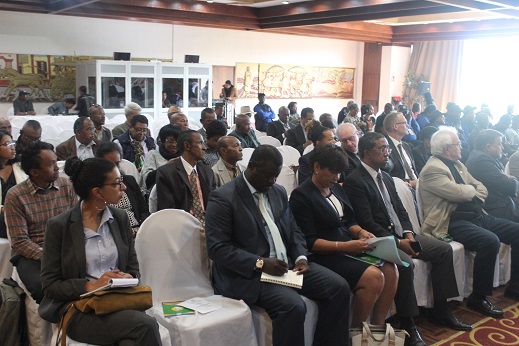The Head of the SADC Electoral Observation Mission (SEOM) and former Minister of Foreign Affairs of the Republic of Zambia, Hon. Dr. Katele Kalumba released the SADC Electoral Observation Mission (SEOM)’s Preliminary Statement following the observation of the 27 May 2019 Legislative Elections in Madagascar.
In terms of the revised SADC Principles and Guidelines Governing Democratic Elections (2015), all national elections in Member States of SADC are to be observed by the SEOM. SEOM deployed 31 observers to 7 of the 22 regions of Madagascar from 18 to 28 May, 2019.
The ceremony for the release of the SEOM Preliminary Statement was held on May 29, 2019, at the Carlton Hotel in Antananarivo in the presence of members of the Diplomatic Corps, representatives of United Nations agencies, representatives of political parties, religious groups, civil society and members of the media.
The SEOM Preliminary Statement covers the Mission’s observation of the pre-election process and voting day activities which includes opening, voting, counting and closing processes.
Prior to the election day, and in accordance with its mandate, the Mission consulted key stakeholders in Madagascar, including government ministries, the Independent Electoral Commission (CENI), the High Constitutional Court (HCC) of Madagascar, the Senate of Madagascar, political parties, civil society organisations, religious organisations and the media.
The Mission noted that the political and security environment was generally peaceful and that the CENI largely discharged its mandate in line with the Constitution and Electoral Law of Madagascar. The SEOM noted that the CENI facilitated the inspection of the voters’ register and conducted a new voters’ registration exercise early this year. As a result, the number of voters for the 27 May Legislative Elections increased to 10,302,194 – from 9, 949, 083 voters in the 2018 Presidential Elections.
The Mission however observed that there was relatively low levels of civic and voter education, particularly given that the country had reintroduced in February 2019, a mixed electoral model - incorporating the First-Past-the-Post (FPTP) and the Proportional Representation (PR) systems. This was done to enhance diversity and representation of previously marginalised sections of the population.
The Mission noted concerns raised by stakeholders that the Decree introducing the mixed electoral system was not well publicized in advance and the majority of the people of Madagascar may not have been aware of these changes. The Mission also observed that participation by voters was relatively low, which might be a consequence of poor voter education; loss of confidence in political parties by the electorate. Stakeholders have indicated that concurrent elections may also lead to voter fatigue due to the separation of Presidential and Legislative Elections. This may have led to a low voter participation rate, provisionally estimated at 30% or less.
The high number of independent candidates, totalling 486, was indicative of this public dis-engagement with political parties, the Mission noted. The underlying argument was that the general population does not consider political parties as vehicles that would champion possible improvements to their socio-economic wellbeing.
The Mission specifically noted that the majority of the political parties did not field candidates in all the 119 constituencies of the country despite the fact that a political party was expected to have majority of members in the National Assembly to form a government.
Among others, the SEOM recommended that, in order to ensure stability of the parliamentary system, the government should consider the institution of legislation to regulate the conduct of independent candidates, particularly in respect of floor crossing and changing political affiliation within their elective tenure.
The Mission further congratulated the Malagasy people and all relevant stakeholders for the peaceful elections and urged all political leaders and their supporters to remain calm whilst CENI and the High Constitution Court finalized the process of releasing the results of the Legislative Elections.
The SEOM's final report of the 2019 Legislative Elections in Madagascar will be completed and issued within 30 days after the close of the electoral cycle in accordance with the provisions of the revised SADC Principles and Guidelines Governing Democratic Elections (2015).


| Attachment | Size |
|---|---|
| SEOM_Preliminary__Statement_Madagascar_29th_May_2019.pdf | 199.76 KB |
| Declaration_Preliminaire_SEOM_Madagascar_29_mai_2019_.pdf | 179.99 KB |

